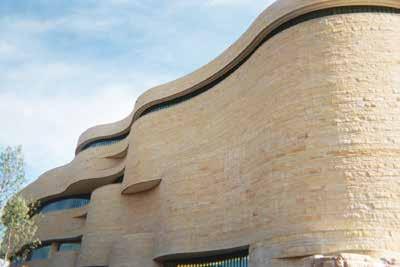
5 minute read
As the Crow Flies
By Robin Hoose
The crow is revered as a sacred keeper of law, an oracle of divination and magic and as a symbol of rebirth and change. For many Native Americans they are a powerful spirit guide, and the message of their medicine should not be ignored despite the negative myths surrounding the crow. Stories and legends from the Pennsylvania, New Jersey and Delaware Indians have revealed much to the unknowing. From the time of the arrival of the Spaniards, this country’s indigenous population has endured incomprehensible adjustments and transitions. As the crow symbolizes rebirth and change, let us seek, with the aid of the crow, to focus on the positive and largely unknown changes made in Native American culture. “As the Crow Flies” seeks to guide us on a discovery of a few of the amazing cultural changes of, for and by Native Americans. There has been a tremendous rebirth of Native culture in recent years. Some of the changes to Native American cultural norms include the arts, music, dance and theatre. Over and above the traditional arts Native Americans are known for such as beading, pottery and weaving, they have excelled in the fields of music, dance, art, literature and acting. In the field of dance, did you know America’s first major prima ballerina was Elizabeth Marie (Betty) Tallchief? Dancing is ingrained in Native American culture and this revolutionary ballerina who began dancing at age three, went on to achieve greatness in the world of ballet.
As for Native American music, while flutes and drums are still uppermost in keeping traditions alive, change has come with new instrumentation, talents and vision, producing contemporary musical enjoyment. In the music scene, Anthony Kiedis, Mohican, was the frontman for the Red Hot Chili Peppers. Additionally in the rock and roll genre, the single making the Top 5 on the 1974 Billboard Hot 100 chart, “Come and Get Your Love” was done by the famous Native American rock band Redbone. Another musical arena that Native Americans stepped into was Classical. White Eagle, Lakota, was a tenor and one of the first American Indians to sing lead roles in musical theatre and opera in the United States. He performed with the Pennsylvania Opera Theatre, performed the finale at the Inaugural Gala for President George Bush and in 1993, debuted in Carnegie Hall. He was subsequently inducted into the South Dakota Hall of Fame as Artist of the year. Native American composers brought with them new musical talents while maintaining grains of traditional music. One such composer was Dr. Louis W. Ballard, the father of Native American composition. Ballard, a member of the Quapaw and Cherokee Nations received a great honor. In 1989 the Beethoven House Chamber Music Hall in Bonn, Germany mounted a program dedicated to Ballard’s compositions and was the first American composer to have that distinction
Native American culture is alive and well around the country and even closer than you may think. The Lenape Cultural Center and Trading Post in Easton, PA is a cultural gem and although small in space, it is large in its displays and history. Located in the Bachmann Publick House on the corner of Northampton and 2nd streets, the cultural center (when not dealing with Covid19) is open to the public on Saturdays from 11:003:00. Admission is free. This building, built in 1753, was once a popular tavern hosting important events that included treating signings during the French and Indian War. One such treaty is on display in Easton’s Sigal Museum. The Bachmann Publick House that once partly served to deal with war and treaties has changed and seen a rebirth as a gathering place for knowledge, friendship and a sense of community. Change and rebirth, is evident in the acceleration of Native cultural interest and awareness. One can truly immerse oneself in Native culture at the stunning Smithsonian National Museum of the American Indian in Washington, D.C. This fabulous museum showcases incredible Indigenous art works including sculptures, hand beaded and woven garments, hand crafted tools and much more. The grand opening of one of the newest museums on the National Mall in 2004 was absolutely spectacular. Members of tribes, great and small processed from one end of the mall to the other with great pride wearing their finest regalia and celebrating the significance of that extraordinary moment in time. A scaled down Native American museum can be found closer to home in New York City at the George Gustav Heye Center, the former Alexander Hamilton U.S. Customs House in Lower Manhattan. Among the art and artifacts displayed are items that date back 12,000 years
“As the Crow Flies” also points to dramatic change in modes of transportation. The traditional mode of transportation of the horse lessened significantly when automobiles came along. This made a major impact in the Native community. While many are still unable to acquire modern modes of transportation, motorized vehicles have drastically improved travel. Native communities are extremely vast and spread out and remotely distanced from mainstream society such as grocery stores, healthcare facilities and other necessary facilities. Native Americans have also taken to flight – perhaps not on a regular basis, but in impressive ways. n Many Native Americans were awarded the Distinguished Flying Cross, the third highest aviation honor during the war. And, in the not too distant past, one Native American went into space. John Herrington, enrolled member of the Chickasaw, was a United States Naval Aviator, engineer and former NASA astronaut aboard the Endeavor. While tremendous hardships, inequalities and disparity in the Native communities still exists, our crow has guided on a journey of positivity with the understanding that there is so much more for us to learn about Native Americans and the changes they have made as well as a rebirth in carrying forth their history and culture in new ways.












